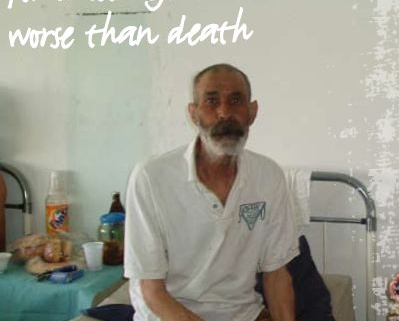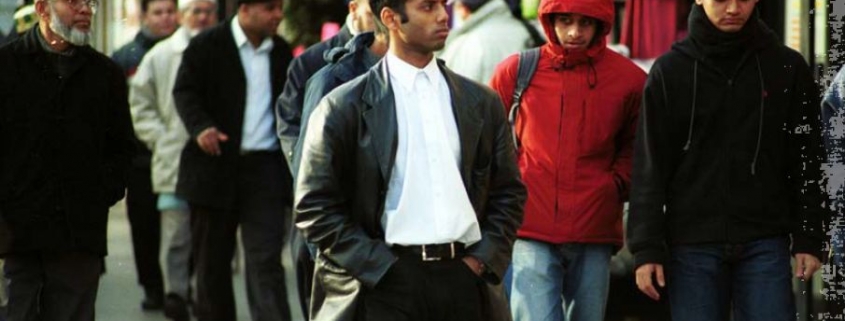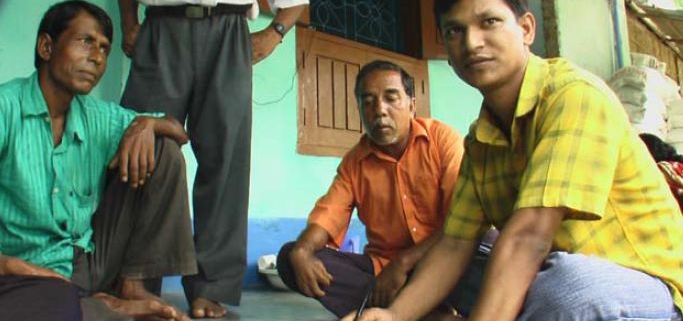“I remember when you came to help out at summer camp,” Dana said. “We played that game… baseball.”
“You do?” I was a little surprised. Not only had that been over two years ago, before I moved here, but many people had come in different years to assist with the summer camp programmes – why would she remember me?
But as we continued our conversation over chai, it turned out I wasn’t the only one she remembered. She and all the other young people remember at least the faces and some of the names of those who helped out with the programmes over the years.
I work with an Orphanage Project in an industrial city in Central Asia. I first visited this Project back in the summer of 2008 (as Dana remembered) to check it out, to find out whether I wanted to join in the work that was being done among the children from two local orphanages. I was so impressed by the way the Project majored on relationships – how these attention- and love-starved kids were being treated like real people – that I moved here in April 2009.
The founder of the Orphanage Project, Keri, has been here about ten years. As I understand it, she had been invited to visit a children’s home where she was struck by the poor condition of the children: they were small, underfed, inadequately dressed and timid. Soon after, she was joined by Mary, who is still on staff, and together they initiated programmes to fill some of the severe gaps in the orphans’ developmental, academic and life-skills education.
Being raised in an orphanage leaves most of the children apathetic and highly dependent, with no idea how to function outside its walls. Most of the children are diagnosed with a disability of one form or another, ranging from the relatively minor – such as behavioural problems and developmental delays – through to mentally disabled. For some of the children the main issues are institutionalisation and the barriers they will encounter as they enter life with a ‘mental disability’ label. This not only affects their chances of further education but narrows their options for good employment.
The programmes, including reading, maths, life skills, summer camps, city excursions, Saturday visits, can be loosely described as steps on a ladder reaching towards the ultimate goal of seeing the orphanage ‘graduates’ well adapted to life outside their institutions. We also help the children build a support network by recruiting and training local volunteers to work with us.
The graduate programme After I had been here 18 months, we were approached by someone from the Department of Education who wanted to know what we planned to do for children once they left the orphanage. At the age of eighteen, having completed their mandatory attendance at a technical college, the teenaged orphans step into the big, wide world, usually with no support network, no job and no place to live. So, with the backing of the government, we began our graduate programme, in which we help the graduates through the challenges of moving from institutional care to real life, and provide training and encouragement as they seek jobs, housing and a place in society.
And that is how ‘my place’ became ‘our place’: two graduates, Dana and Indira, moved in with me as part of our formal graduate programme, and that baseball conversation over chai (tea) was one we shared in the months we lived together.
Dana and Indira The girls moved in with me on a holiday weekend, and before it was over, they had written their resumes and, though terrified, were ready to start door-knocking for work. Only an hour and a half into the job search, Dana bounced in the door. “I’ve got a job!”
The next day, Indira was really hoping to come home with the same news. I accompanied her as she went from door to door. She came out of the tenth café with a sigh. “This is just not my lucky day!” she said as she came towards me.
We headed to the next one. With a deep breath she disappeared once more and I resumed my wait on the street. She was gone a while this time. Eventually she came out beaming from ear to ear and jabbering away, not making much sense. Attempt number eleven made that day her lucky day.
This was just over eight months ago. The conversation over dinner that night was all excitement; it was as if they each had the world in their hands. They had been in the city for less than a week, both had jobs, which they had found themselves, and this was just the beginning of much more.
Our life settled into a routine as the girls learned the responsibilities of daily living, how to cook and clean, and how to respect those they lived with. Even more challenging was discovering the difference between needs and wants as they learned to stretch their salary across the whole month. But the hardest part was working out what to do with the weekend, how to behave appropriately in the new world around them, and how to act in social situations.
It’s been about four months since they both moved out into flats and became fully independent. They know, however, that my door will always be open to them if they ever want to swing by.
Dana stopped in the other day. We hadn’t seen each other for three weeks so she wanted to catch up. I had another friend visiting so the three of us had chai together. When Dana was living with me, she tended to demand full attention at all times. Her mouth rarely stopped moving and the topic was usually whatever was on her mind. This time, however, I noticed an impressive change: Dana participated in the conversation without taking it over, offering her thoughts and questions and waiting and listening for responses. It was as if, all of a sudden, she had become an adult.
It has been an amazing, exciting and stressful experience for me, watching over Dana and Indira and growing and learning with them. Those few months gave support at a crucial time as the girls transitioned into life in the big, wide world. We are confident that Indira and Dana will go on to establish themselves as independent, valuable members of society, and we are looking forward to our next group of graduates.
Hope has been working with children and youth in Central Asia for over eight years.




